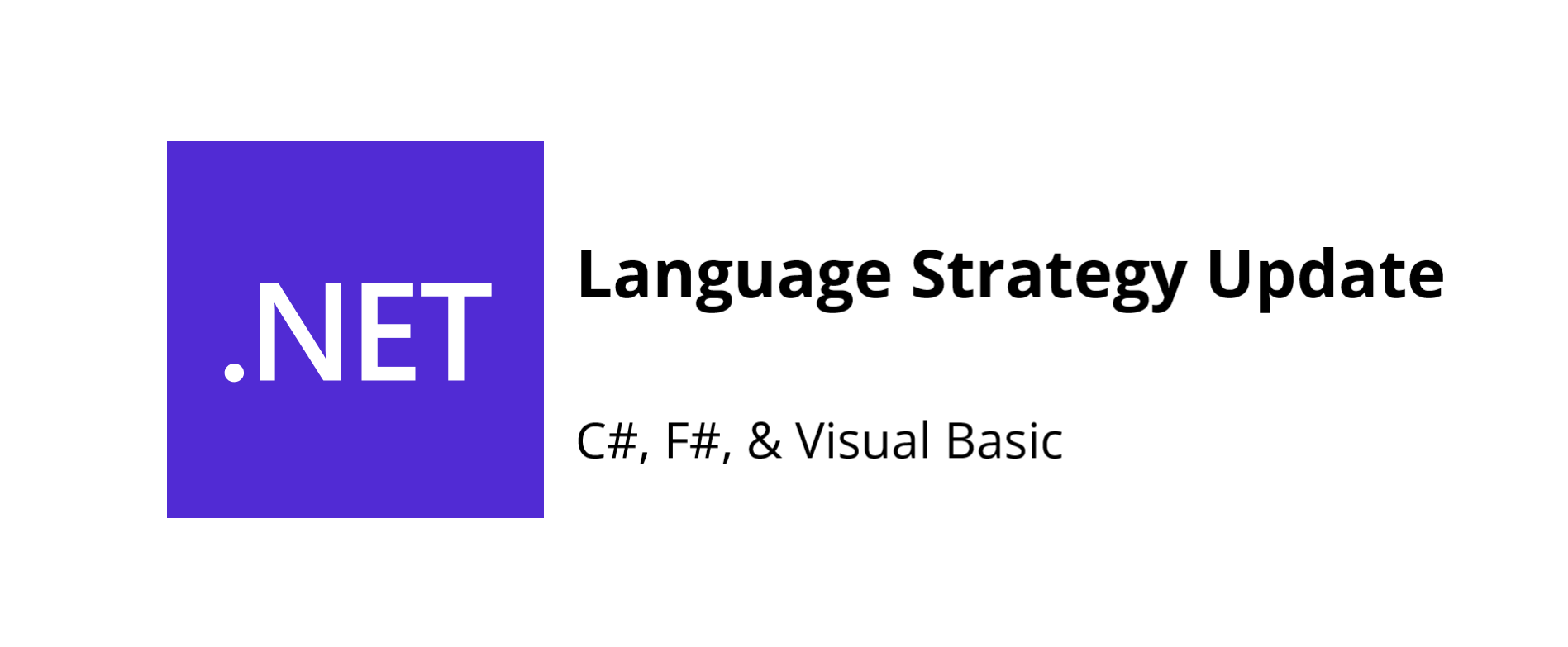In 2017, we posted the strategy for .NET Languages at Microsoft as a blog post. Today, we’re publishing an updated version of the .NET Language Strategy at Microsoft Learn. It has been a long time since we have updated our strategy because our commitments to the languages that you rely on and how we think about them don’t change year to year. We’re with you for the long term.
Microsoft offers three languages on the .NET platform – C#, F#, and Visual Basic. The new .NET Language Strategy updates all three. It also includes a description that shares our perspective about each language. You’ll find additional articles with further comments on key parts of the language strategy for C#, F#, and Visual Basic. The .NET Language Strategy is available in English today and is being translated to other languages.
We’re publishing the updated strategies on Microsoft Learn to give them more permanence and make them easy to find. The previous blog post was great and we often linked to it. But, over time, it became harder to find and felt out of date. If you did find it, there was no indication that it was still our active strategy. The published version on Microsoft Learn reflects the current strategy and lets us keep it up to date. It also makes it easy to find and indicates its importance.
You won’t find big changes. We remain committed to full support for all three languages. We are also committed to open source, backwards compatibility, and aggressive language evolution for C# and F#. We took the time to reconsider, adjust and recommit to our strategy. You remain the reason we are passionate about language, and engaging with the community is a primary driver for language evolution.
Each .NET language is unique. C# is the most widely used language and the language most of .NET is written in. F# explores new language possibilities and the community provides a rich experience across platforms. We remain committed to Visual Basic and continue to invest in maintaining C# interop and Visual Studio features for folks that love Visual Basic or want a stable language.
We know that when you choose a language you make a commitment to your business and your career. We are honored that you chose us and we take that responsibility seriously. We love what we do and we think about you, about the developers that use .NET languages, in every decision we make.
The success of our languages depends on honest, open communication. The new location makes it easier to continue the conversations that the previous blog post started. Publishing our language strategies in a prominent location also keeps it front and center for us. It emphasizes the importance of our strategies, and how they guide us as we evolve the languages.
Our job every day is to make it easier for you to do your job. We know part of that is being confident in Microsoft’s commitment to the languages you love.
Source:

Update to the .NET language strategy
Interested in what is going on and the future of .NET languages, (C#, F#, and Visual Basic)? We have just published an updated version of the .NET Language Strategy on our documentation!










